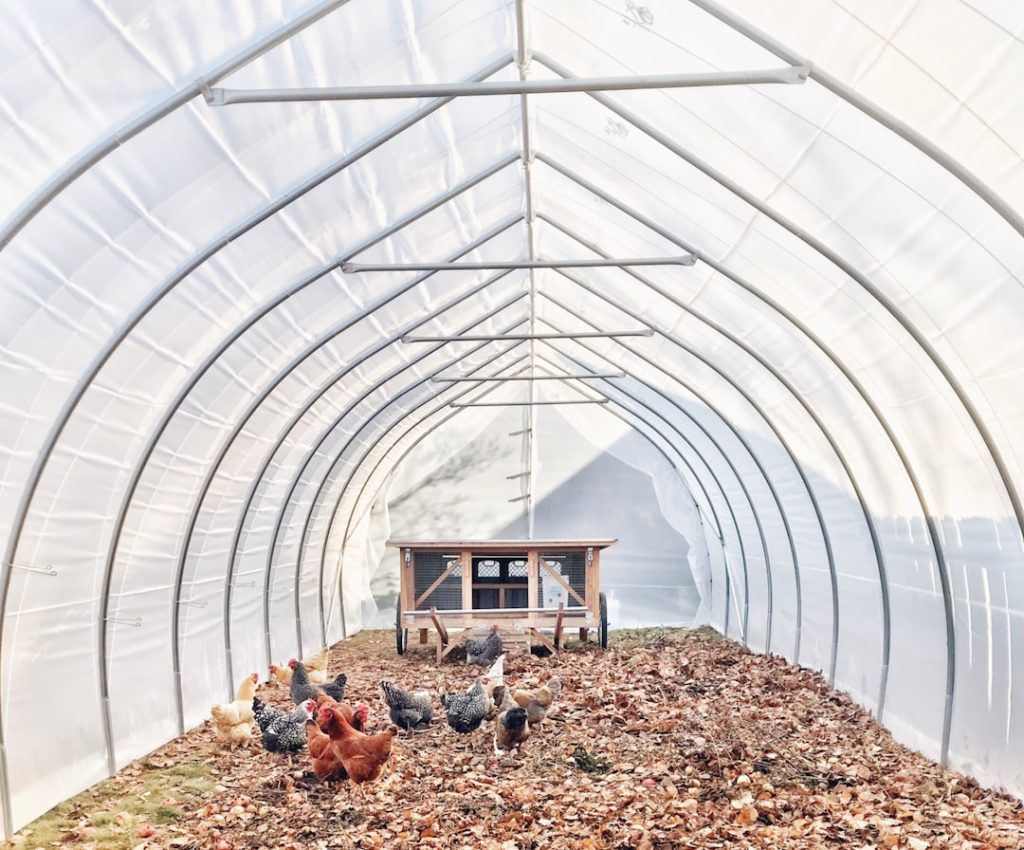Cats and chickens possess distinct instincts that shape their behavior and interactions. Cats are natural predators with a strong hunting drive, characterized by their agility, stealth, and sharp claws and teeth. They are known to pursue and capture small prey, including birds, rodents, and insects.
Chickens, conversely, are prey animals with a pronounced flocking instinct. They exhibit skittish behavior and are easily startled, relying on their flock for protection and comfort. Within their group, chickens establish a hierarchical pecking order and display territorial tendencies.
When introducing cats and chickens to a shared environment, it is essential to consider these innate behaviors. Cats may perceive chickens as potential prey, while chickens may view cats as predators. Recognizing these instinctual responses is crucial for creating a safe and harmonious living space for both species.
By understanding and accommodating their natural tendencies, pet owners can take appropriate measures to ensure the well-being of both cats and chickens in a domestic setting.
Table of Contents
- 1 Creating a Safe and Secure Environment for Chickens
- 2 Supervising Interactions Between Cats and Chickens
- 3 Providing Enrichment and Distractions for Cats
- 4 Training and Redirecting Your Cat’s Behavior
- 5 Seeking Professional Help and Advice
- 6 Finding a Balance Between Cats and Chickens in Your Home
- 7 FAQs
Key Takeaways
- Cats and chickens have different instincts, and understanding them is crucial for their cohabitation.
- Creating a safe and secure environment for chickens is essential to protect them from potential harm by cats.
- Supervising interactions between cats and chickens is necessary to ensure the safety of both animals.
- Providing enrichment and distractions for cats can help redirect their attention away from the chickens.
- Training and redirecting your cat’s behavior through positive reinforcement can help create a harmonious environment for both cats and chickens.
- Seeking professional help and advice can be beneficial in addressing any challenges in integrating cats and chickens in your home.
- Finding a balance between cats and chickens in your home requires careful management and understanding of both animals’ needs and behaviors.
Creating a Safe and Secure Environment for Chickens
Secure Coop and Run
The coop should be sturdy and secure, with no gaps or openings that a cat could squeeze through. The run should also be covered with wire mesh to prevent cats or other predators from gaining access to the chickens.
Providing Hiding Spots and Perches
It is crucial to provide plenty of hiding spots and perches for the chickens to escape to if they feel threatened. This can include shrubs, bushes, or elevated platforms where the chickens can retreat to safety.
Reducing Stress and Minimizing Predation
By providing a safe environment for the chickens, you can help reduce their stress levels and minimize the risk of predation by cats. This is crucial when keeping cats and chickens together, as it ensures the well-being and safety of both species.
Supervising Interactions Between Cats and Chickens

When introducing cats and chickens, it is important to supervise their interactions closely. This can help prevent any potential conflicts or injuries between the two animals. Keep the initial interactions short and positive, allowing the animals to become familiar with each other’s presence without feeling threatened.
It is also important to provide separate spaces for the cats and chickens to retreat to if they feel uncomfortable. This can include providing separate feeding areas for each animal, as well as separate sleeping areas where they can rest undisturbed. By supervising their interactions and providing separate spaces, you can help minimize any potential conflicts between cats and chickens.
Supervising interactions between cats and chickens is crucial when introducing them to each other. This can help prevent potential conflicts or injuries between the two animals. Keep the initial interactions short and positive, allowing the animals to become familiar with each other’s presence without feeling threatened.
It is also important to provide separate spaces for the cats and chickens to retreat to if they feel uncomfortable. This can include separate feeding areas for each animal, as well as separate sleeping areas where they can rest undisturbed. By supervising their interactions and providing separate spaces, you can help minimize any potential conflicts between cats and chickens.
Providing Enrichment and Distractions for Cats
Cats are intelligent and curious animals that require mental stimulation and enrichment to keep them happy and healthy. Providing toys, scratching posts, climbing trees, and puzzle feeders can help keep your cat entertained and mentally engaged. Additionally, providing access to windows or outdoor enclosures where they can observe birds or wildlife can help satisfy their natural hunting instincts.
It is also important to provide plenty of vertical space for your cat to climb and explore. This can include cat trees, shelves, or perches where they can survey their environment from a safe vantage point. By providing enrichment and distractions for your cat, you can help redirect their predatory instincts away from the chickens.
Cats are intelligent and curious animals that require mental stimulation and enrichment to keep them happy and healthy. Providing toys, scratching posts, climbing trees, and puzzle feeders can help keep your cat entertained and mentally engaged. Additionally, providing access to windows or outdoor enclosures where they can observe birds or wildlife can help satisfy their natural hunting instincts.
It is also important to provide plenty of vertical space for your cat to climb and explore. This can include cat trees, shelves, or perches where they can survey their environment from a safe vantage point. By providing enrichment and distractions for your cat, you can help redirect their predatory instincts away from the chickens.
Training and Redirecting Your Cat’s Behavior
Training your cat to coexist peacefully with chickens involves redirecting their natural predatory instincts towards more appropriate behaviors. This can include using positive reinforcement techniques such as clicker training or treats to reward your cat for calm behavior around the chickens. Additionally, providing interactive play sessions with toys or laser pointers can help satisfy your cat’s hunting instincts in a controlled environment.
It is also important to set clear boundaries for your cat’s behavior around the chickens. This can include using deterrents such as motion-activated sprays or noise devices to discourage your cat from approaching the chickens in an aggressive manner. By training and redirecting your cat’s behavior, you can help create a harmonious relationship between your cat and chickens.
Training your cat to coexist peacefully with chickens involves redirecting their natural predatory instincts towards more appropriate behaviors. This can include using positive reinforcement techniques such as clicker training or treats to reward your cat for calm behavior around the chickens. Additionally, providing interactive play sessions with toys or laser pointers can help satisfy your cat’s hunting instincts in a controlled environment.
It is also important to set clear boundaries for your cat’s behavior around the chickens. This can include using deterrents such as motion-activated sprays or noise devices to discourage your cat from approaching the chickens in an aggressive manner. By training and redirecting your cat’s behavior, you can help create a harmonious relationship between your cat and chickens.
Seeking Professional Help and Advice

Expert Guidance
A certified animal behaviorist or veterinarian can offer personalized advice and guidance on how to create a balanced and harmonious environment for both your cat and chickens. Their expertise can help you identify potential issues and develop strategies to prevent conflicts between your pets.
Support from the Community
In addition to seeking professional help, joining online forums or community groups dedicated to multi-species households can provide support and advice from other pet owners who have successfully integrated cats and chickens into their homes. These communities can offer a wealth of knowledge and experience, as well as emotional support and encouragement.
Creating a Balanced Environment
By seeking professional help and advice, you can gain the tools and resources needed to create a balanced and harmonious environment for both your cat and chickens. With the right guidance and support, you can enjoy a peaceful and loving home where all your pets can thrive.
Finding a Balance Between Cats and Chickens in Your Home
Introducing cats and chickens into the same household requires careful planning, supervision, and understanding of each animal’s instincts. By creating a safe environment for the chickens, providing enrichment for the cats, supervising their interactions, training your cat’s behavior, and seeking professional help when needed, you can create a harmonious relationship between your pets. Finding a balance between cats and chickens in your home may require patience and persistence, but with the right approach, it is possible for these two very different animals to coexist peacefully.
With proper management and understanding of their instincts, cats and chickens can live together in harmony, bringing joy and companionship to your home.
If you’re struggling to keep your cat from killing your chickens, you may want to consider investing in a secure chicken coop like the one recommended in this article. A sturdy coop can provide a safe space for your chickens to roam without the threat of being attacked by your cat.
FAQs
What are some ways to keep my cat from killing my chickens?
Some ways to keep your cat from killing your chickens include keeping your cat indoors, providing a secure chicken coop, using deterrents such as motion-activated sprinklers or ultrasonic devices, and training your cat to leave the chickens alone.
Why do cats kill chickens?
Cats are natural hunters and may see chickens as prey. They may also be attracted to the movement and sounds of the chickens, leading them to attack.
Can I train my cat to not kill my chickens?
Yes, you can train your cat to leave the chickens alone using positive reinforcement techniques, such as rewarding your cat for ignoring the chickens and redirecting their attention to toys or other activities.
Are there any products that can help keep my cat away from my chickens?
There are products available, such as motion-activated sprinklers, ultrasonic devices, and cat deterrent sprays, that can help keep your cat away from your chickens. Additionally, providing a secure chicken coop can also help prevent cat attacks.
Should I keep my cat indoors to prevent it from killing my chickens?
Keeping your cat indoors is one of the most effective ways to prevent it from killing your chickens. This not only protects your chickens, but also keeps your cat safe from potential dangers outdoors.
Meet Walter, the feathered-friend fanatic of Florida! Nestled in the sunshine state, Walter struts through life with his feathered companions, clucking his way to happiness. With a coop that’s fancier than a five-star hotel, he’s the Don Juan of the chicken world. When he’s not teaching his hens to do the cha-cha, you’ll find him in a heated debate with his prized rooster, Sir Clucks-a-Lot. Walter’s poultry passion is no yolk; he’s the sunny-side-up guy you never knew you needed in your flock of friends!







